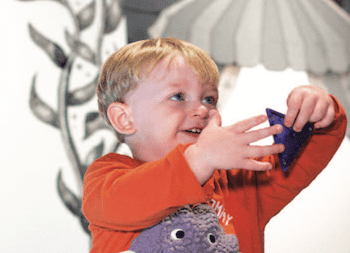Alien-Nation
By Bob Derber and Judge Paul Marigonda
Custody disputes are difficult and seldom rewarding. More so, where a parent alienates the child against the other parent. This is not a norm for families. But custody disputes are high conflict situations and alienation is often present.

Alienation can be hard to identify. It might be the child calling the new ‘significant other’ Dad or Mom, off-hand comments to the child that the other parent is irresponsible or the scheduling of doctor visits difficult for the other parent to attend.
Where there is positive co-parenting, these matters may simply reflect circumstances. But if active alienation is involved, this behavior destroys parent/child. The child is the real loser.
Judges face a difficult task sorting alienation from occasional parental frustration.

Sometimes it’s obvious, as when a parent ‘coaches’ the child to excess. More often, proving alienation requires professional input.
The solution may be therapy for the alienating parent. But what therapy is successful if the person is not open to therapy?
So what should you do when you are the alienated parent:
- Educate: Educate yourself on how to temper alienating conduct.
- Engage: Be an active parent; take responsibility for your child’s life.
- Document: Journal, keep text messages and a calendar of events to help identify alienating behaviors.
- Protect: Consider therapy for the child to help them identify and process the confusion and uncertainty alienation creates.
Educate: An alienating parent seldom changes, but you can understand the behaviour and actively neutralize its affect. Books and videos abound on the subject. Organizations provide helpful resources and forums. A therapist can help you develop coping strategies that fit your circumstances.
Engage: Be present for your child. Know the teacher and coach or manage the team. Attend doctor visits: schedule them yourself! Review regularly your school’s on-line attendance, conduct and grading system.
Document: Journal to identify and recall alienating events. You may need to prove this in court, but more importantly, you will sharpen your own understanding of the challenges you face.
Protect: Get a therapist involved with your child who specialized in alienation. This is not a ‘recognized’ specialty, but there are individuals trained in the area and it is terribly complex.
So how can a court help? Our courts often order parents to not speak poorly of the other parent or discuss a family law case in front of the children. These orders are difficult to enforce but they provide a foundation for the judge to make custodial adjustments if alienation is suspected. You may need a court order requiring therapy for a child, or even the other parent, and the court may require the therapist report his or her findings.
Two major judicial tools exist where alienation is suspected by the court: 1) a Custodial Evaluation and 2) a parental Psychological Evaluation. Both options are expensive, but the court can allocate the cost between the parents based upon the circumstances.
Custodial Evaluations are in-depth analyses to identify parenting issues and propose solutions to the court. They take several months and multiple visits with a professional so that s/he can analyze your matter in-depth and help find solutions. The professional may interview parents, children, teachers and others who have experience with your child. Specific guidelines exist for the process and a detailed report is typically issued.
The Psychological Evaluation is a more ‘radical’ tool typically focused on the parent suspected of challenging conduct. It is far more expensive and is performed by a psychologist or psychiatrist. Court’s will hesitate to order this. There must be a strong suspicion of a parent’s conduct before this tool is used. Like the Custodial Evaluation, it is a several months’ process involving multiple visits with the professional.
Alienation can reflect parental conflict, but it may also result from a parent’s psychological disorder. We are lucky in Santa Cruz to have judges who are trained in child development and take alienation matters seriously. But they are also aware that parents often allege alienation to get an upper-hand in custody battles, and they are not equipped to identify complex parenting issues without help. If your circumstances require a more in-depth analysis for input to the court, consider the above tools
From the Bench
By Judge Paul Marigonda
Never involve children in parental matters, and never speak poorly of the other parent. No matter what you think, display a neutral attitude toward the other parent. Court orders typically require this. When we see alienating conduct, you can expect ordered therapy for your child to protect him or her and to inform the court if alienation is a factor we need to address.








2 Comments
Jay Cohen
They Court System is Broke and It knows it and still does not want to make changes…
I have a lot to say … and solutions not just issues…
I am willing to sit at the table and discuss a better approach for all children of this disease called separation … that leads to hostage child parent alientation issues… that the court overlooks and so does everyone else becase that is abnormal and requires some continuing education…
What continuing education do the judges do…. related to the law they are ruling ?
where is that info posted…
Thank you…
Flor Schmitt
From the article, “But if active alienation is involved, this behavior destroys parent/child. The child is the real loser.” And…. What does the court do considering the disaster of this creation??